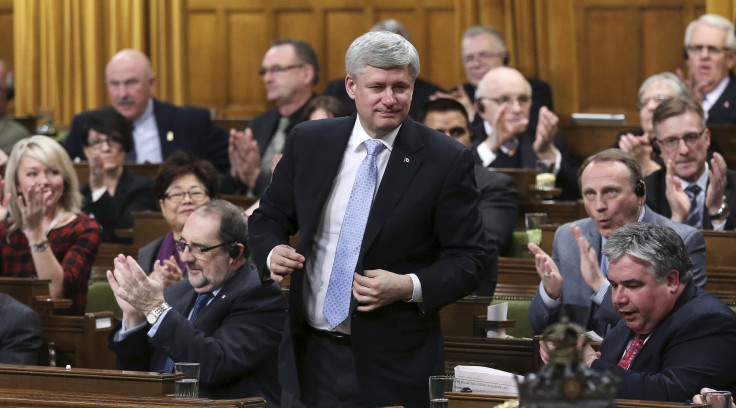Canadian Parliament Approves Extending Mission, Including Airstrikes, Against ISIS In Syria

The Canadian parliament on Monday approved to extend the country's mission against the Islamic State group in Syria by a year. The mission will now include conducting airstrikes in the Middle Eastern country, large parts of which have been taken over by the Sunni militant group.
The parliament voted 142 to 129 in favor of the motion aimed at extending the mission in Syria. The mission will include six CF-18 fighter jets, a CC-150 Polaris air-to-air refueling aircraft, two CP-140 Aurora surveillance aircraft, along with 600 aircrew and other personnel deployed to fight the militant organization’s spread in the region. Canadian lawmakers also voted in favor of keeping up to 69 special forces advisers to guide Kurdish peshmerga troops in northern Iraq, according to the Associated Press.
“While the coalition has succeeded in stopping ISIL's territorial spread, the global threat that ISIL poses remains,” Canadian Prime Minister Stephen Harper said after the vote, in a statement, according to the Canadian Press, adding: “In particular, we cannot stand on the sidelines while ISIL continues to promote terrorism in Canada as well as against our allies and partners, nor can we allow ISIL to have a safe haven in Syria.”
Following the vote, Canada will become only the second NATO country, after the U.S., to conduct airstrikes in Syria. Other countries like Bahrain, Saudi Arabia, Jordan and the United Arab Emirates have already been conducting airstrikes to beat back the group's advance in the region.
Six months ago, neither the left-leaning New Democrats, which is the country’s main opposition party, nor the Liberals had supported the original mission or its extension. They had reportedly said that the Canadian government had not offered a proper explanation for the decision to engage ISIS. Opposition parties reportedly maintain that the real reason for the mission and Canada's involvement in the region remains questionable.
"This is a serious ethical problem for Canada. Dismissing it betrays the government's lack of knowledge about a region that could suck Canada into decades of conflict,'' NDP Leader Tom Mulcair said on Monday, during the debate, according to the Canadian Press, adding: "The prime minister tells Canadians that we can either bomb Iraq and Syria, or sit on the sidelines. That's a false choice.''
© Copyright IBTimes 2025. All rights reserved.






















